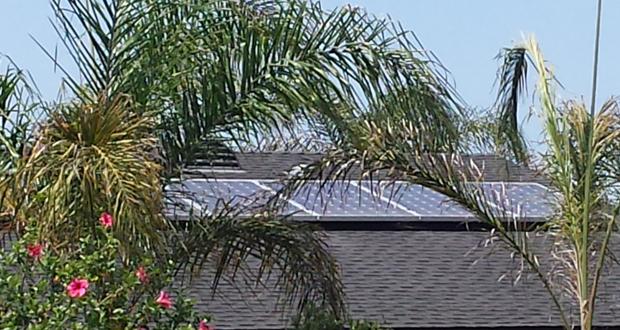Sacramento CA— The California Public Utilities Commission officially voted, on Thursday, to extend net metering for solar customers indefinitely. In its 3-2 vote, the Commission firmly rejected proposals from the utilities to replace net metering with complicated schemes that would have put solar out of reach for most consumers. This decision puts California in stark contrast to neighboring states, such as Nevada, which recently went in the opposite direction, shutting down the rooftop solar industry there.
“We all know that California is a world leader when it comes to being ‘green’,” said Bernadette Del Chiaro, executive director of the California Solar Energy Industries Association (CALSEIA). “But today’s vote is more than that. It is about California continuing to champion innovation and a different way of doing things, in this case, building a smarter energy grid and allowing individual consumers to generate their own clean electricity.”
Under the proposed decision, the utility meter will continue spinning backward at full retail rates for solar customers when they are generating more electricity than they are using, but a new fee will partially offset the value of those credits. Solar customers will be required to pay increased charges for upkeep of the grid as well as public purpose programs like energy efficiency rebates and low-income bill assistance.
“The Commission agreed that tying solar credits to retail rates is important because it is simple and proven effective,” said CALSEIA Policy Director Brad Heavner. “In the debate over net metering that is flaring up in states across the country, California has said yes to continuing net metering and that’s very significant.”
The new rules also create an application fee of up to $150 and requires residential solar customers to be on “time-of-use rates” that vary depending on the time of day. Commercial and agricultural customers are already on mandatory time-of-use rates.
“The utilities are upset because they weren’t successful at killing rooftop solar like some of their counterparts in other states have done, but the Commission determined that net metering should change only gradually,” added Del Chiaro. “This decision takes significant steps to change net metering over time, but we are confident it will maintain the opportunity to go solar for most types of customers.
Details of the NEM Decision
- Maintains full retail credit for net metering and guarantees that customers who install solar under these rules will not be subject to future changes to these rules for 20 years.
- Creates an interconnection fee between $75 and $150 and assesses “non-bypassable charges” (NBCs) that equate to $8-9/month for most residential customers. Rejects utility proposals for demand charges, capacity fees, grid access fees, standby charges, and monthly netting.
- Requires residential NEM 2.0 customers to be on time-of-use (TOU) rates. (Most commercial and agricultural customers are already required to use TOU rates.)
- Expands access to solar for renters and retains access for farmers. Defers work to expand solar in disadvantaged communities to the next phase of the proceeding.
The changes to net metering in this decision do not affect customers who already have solar or who install solar before utilities meet certain thresholds. CALSEIA estimates these thresholds will be met in April 2016 for San Diego Gas & Electric, August 2016 for Pacific Gas & Electric, and early 2017 for Southern California Edison.
Today’s decision was put in motion by AB 327 (Perea), passed by the California state legislature in 2013. That law removed the cap on net metering, previously set at 5% of a utility’s peak load, and directed the CPUC to create an uncapped program that was guaranteed to allow rooftop solar to continue to grow sustainably.
About CALSEIA
Since the 1970s, CALSEIA has advanced the common interests of the California solar industry, helping to make California’s solar customer adoption the most robust in the United States. Comprised of hundreds of California solar contractors, manufacturers, distributors, developers, utilities, engineers, consultants and educational organizations, CALSEIA represents a diverse membership committed to growing the California solar industry. CALSEIA engages with local and state decision makers to ensure California remains a solar energy leader through good public policy and regulations that provide clarity, transparency, and certainty for the state’s growing solar market.




